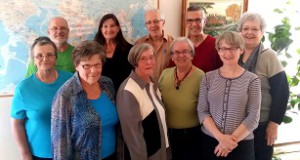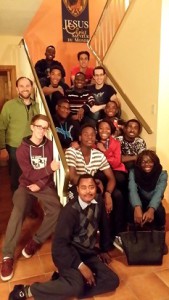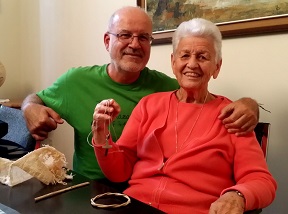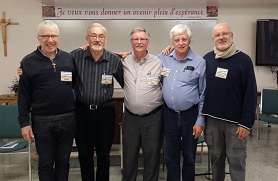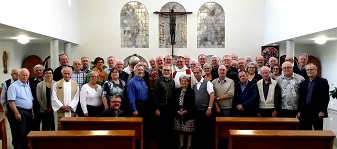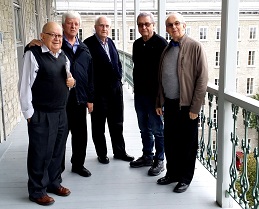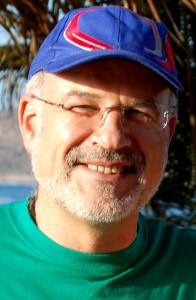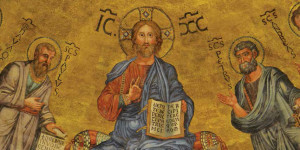Life and Mission of our Priest Fraternities in America
Information from each country
Country:
Number of priests in Fraternity:
Less than 40 years old: More than 40 years old:
Number of Local Fraternities in each Region:
Area 1: Spirituality
Our Priest Fraternity Jesus Caritas has a few of its own means to develop our Life in the Spirit, following the footsteps of Br. Charles. I list the most important and I ask you to rate them with the following: Very well developed, regularly developed, developed a little, undeveloped
Daily Eucharistic Adoration
Day in the Desert
Monthly Fraternity Meeting
Review of Life
Prayer of Abandonment
Annual retreat
Month of Nazareth
Life and Mission of Brother Charles
Area 2: Fraternity
Our Priest Fraternity has as its fundamental structure the small community of priests (5 or 6 brothers) who meet once a month and who intend to live the fraternal life not only on prayer days but in various ways throughout the month and with other local fraternities of the region and country.
2.1 How do you try in your country to strengthen fraternal bonds within the local fraternity and with other fraternities in the region and country?
2.2 Is there on-going communication between local fraternities? What means are utilized?
2.3 Do fraternities accompany one another to remain faithful to appropriate methods of spiritual growth? How?
2.4 What coordinating structures do local fraternities have with each region in the country?
2.5 How does the regional level encourage the meetings of local fraternities?
2.6 What roles do the National Responsible and Regional Responsibles play?
Area 3: Pastoral Mission
As diocesan priests, inspired with the charism of Br. Charles, we know that our mission is the evangelization of those most abandoned and distant from the Christian faith, principally through our style of life and our witness. “Apostolate of generosity,” “Cry the Gospel with our lives,” as Blessed Charles said.
3.1 In what ways are we working with the theme of our style of life as priest in our country? To what conclusions have we come?
3.2 In what ways are we working with the theme of our manner of doing pastoral work? To what conclusions have we come?
3.3 Following the orientation of Pope Francis to the “geographic and existential peripheries” are we reaching our evangelizing mission? How are we doing it? What helps and difficulties have we encountered?
3.4 Could we say that the fraternities of our country have made a ‘preferential option’ for the poor and their struggles, understanding that there are diverse forms of poverty? What are concrete signs of this option?
3.5 Do we have some kind of ecumenical or interreligious dialog in our countries?
Area 4: Connections with the Spiritual Family of Br. Charles
4.1 We know that the charism of Br. Charles is shared by laity and religious and with whom we form what is called the Family of Charles de Foucauld. In our country are there ties to this Family? Which? How have they functioned? What successes have we had?
4.2 We also have awareness of belonging to a Priestly Fraternity that is in various countries. What connections do we maintain with other countries? What connections with the International Council?
4.3 As diocesan priests we belong to a presbyterate. Do we have presence, participation and input to our presbyterate? Mention some significant examples.
4.4 As a Priestly Fraternity, recognized by the Holy See, we have an institutional presence in each country. Do we have some connection with the Conference of Bishops? What kind?
Area 5: Growth of our Fraternity
We are convinced that the charism of Brother Charles has made the Church better and will continue making it so in the measure that all the members of the Foucauldian Family are faithful to this charism. For this reason we are interested not only in the spiritual growth of our Fraternity but also numerical growth.
5.1 In what way has our Priestly Fraternity become known by other priests in our dioceses?
5.2 What perception do they have of our Fraternity, especially the youngest priests?
5.3 Has there been some opportunities to get to know seminarians and their formators? What results have we had?
5.4 What follow-up has been made to priests or seminarians who have shown some interest in knowing us better and eventually being integrated to our Fraternity?
5.5 Does the Fraternity have some definite policy to incorporate the priests who have made the decision to join us and to accompany them into a new local fraternity?
Dear Brothers:
I ask you to send your reports before October 15 in three languages (English, Spanish and French), in order to have as objective a vision as possible of what is happening in the fraternities of our countries. Thus I can forward them to the participants for study.
I also ask you to bring to the Assembly a Presentation in Power Point of the most significant aspects of Life and Mission of our Fraternities. Each representative will have a maximum of 20 minutes to share.
Many thanks,
Fernando Tapia, Priest
Coordinator of the Assembly
DOC: ENGLISH Questionaire Life and Mission first Panamerican Assembly





